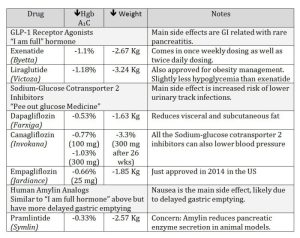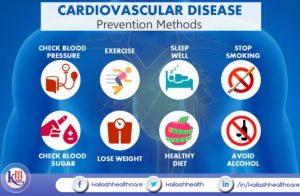
Welcome to a world of Type 1 diabetes lifestyle tips, where we dive into the key aspects of managing this condition with expert advice and practical tips. Get ready for a journey filled with insights and strategies to enhance your quality of life!
Let’s kick things off by exploring the importance of exercise, dietary recommendations, blood sugar monitoring, and stress management in the context of Type 1 diabetes.
Type 1 Diabetes Lifestyle Tips

Regular exercise plays a crucial role in managing type 1 diabetes. It helps improve insulin sensitivity, control blood sugar levels, and overall health. Staying active can also reduce the risk of complications associated with diabetes.
Importance of Regular Exercise
- Engaging in physical activity helps lower blood sugar levels by increasing glucose uptake by the muscles.
- Exercise can improve cardiovascular health, lower blood pressure, and reduce the risk of heart disease, which is common among individuals with diabetes.
- It is essential to choose activities that you enjoy and can easily incorporate into your daily routine to ensure consistency.
Dietary Recommendations
- Focus on a balanced diet that includes whole grains, lean proteins, fruits, vegetables, and healthy fats.
- Monitor carbohydrate intake and spread them evenly throughout the day to avoid spikes in blood sugar levels.
- Avoid sugary beverages and processed foods high in added sugars, as they can lead to rapid blood sugar fluctuations.
Monitoring Blood Sugar Levels
- Regularly checking blood sugar levels helps you understand how different foods, activities, and stress levels affect your glucose levels.
- Use a blood glucose monitor or continuous glucose monitoring system as recommended by your healthcare provider.
- Keep a log of your readings to identify patterns and make necessary adjustments to your diabetes management plan.
Managing Stress
- Stress can impact blood sugar levels, so it is essential to find healthy ways to cope, such as mindfulness techniques, deep breathing exercises, or engaging in hobbies you enjoy.
- Prioritize self-care and make time for relaxation to reduce stress levels and improve overall well-being.
- Seek support from family, friends, or a mental health professional if stress becomes overwhelming.
Cosmetic Surgery
Cosmetic surgery is a popular option for individuals looking to enhance their appearance and boost their confidence. While these procedures can provide numerous benefits, it is essential to understand the risks involved and the importance of choosing a qualified surgeon for optimal results.
Common Cosmetic Surgery Procedures
- Rhinoplasty: A nose reshaping procedure that can improve the appearance and function of the nose.
- Breast Augmentation: Enhancing the size and shape of the breasts through the use of implants.
- Liposuction: Removing excess fat deposits to contour the body.
- Facelift: Tightening and lifting the facial skin to reduce sagging and wrinkles.
Benefits of Cosmetic Surgery
- Improved self-confidence and self-esteem.
- Enhanced physical appearance and symmetry.
- Correction of physical abnormalities or defects.
- Increased overall quality of life and mental well-being.
Risks Associated with Cosmetic Surgery
- Infection and complications during or after surgery.
- Adverse reactions to anesthesia or medications.
- Unsatisfactory results or asymmetry.
- Scarring or changes in sensation at the surgical site.
Choosing a Qualified Surgeon
- Research the surgeon’s credentials, experience, and reputation.
- Ensure the surgeon is board-certified and has expertise in the specific procedure you are considering.
- Ask for before and after photos of previous patients to assess the surgeon’s work.
- Have a consultation to discuss your goals and expectations with the surgeon.
Pre and Post-Operative Care Tips
- Follow all pre-operative instructions provided by your surgeon.
- Avoid smoking and certain medications that may interfere with the surgery.
- Plan for a smooth recovery period with adequate rest and follow-up appointments.
- Adhere to post-operative care guidelines for optimal healing and results.
Foot Health

Maintaining good foot health is crucial for individuals with diabetes to prevent serious complications. Diabetes can lead to nerve damage and poor circulation, increasing the risk of foot infections and other problems. Here are some tips to help you take care of your feet:
Proper Foot Care
- Wash your feet daily with lukewarm water and mild soap, then pat them dry gently.
- Moisturize your feet, but avoid applying lotion between your toes to prevent fungal infections.
- Check your feet daily for any cuts, blisters, redness, or swelling.
- Trim your toenails straight across and file the edges to prevent ingrown toenails.
Common Foot Problems and Solutions
- Foot ulcers: Keep pressure off the ulcer, clean it with mild soap and water, and dress it with a sterile bandage.
- Neuropathy: Wear comfortable shoes to protect your feet, avoid walking barefoot, and check your feet regularly for injuries.
- Fungal infections: Keep your feet clean and dry, change your socks daily, and wear breathable footwear.
Choosing the Right Footwear
- Select shoes that fit well, provide support, and have a wide toe box to prevent rubbing and irritation.
- Avoid high heels, pointed shoes, and shoes with seams inside that can cause pressure points.
- Consider diabetic shoes or orthotic inserts to reduce pressure on your feet and prevent complications.
Heart Disease
Heart disease is a common complication of diabetes, especially in individuals with Type 1 diabetes. The link between diabetes and heart disease is well-established, as high blood sugar levels can damage blood vessels over time, leading to a higher risk of cardiovascular problems.
Lifestyle Changes for Heart Health
- Regular Exercise: Engaging in physical activity on a regular basis can help improve heart health by lowering blood sugar levels, reducing blood pressure, and managing cholesterol levels.
- Healthy Diet: Eating a balanced diet rich in fruits, vegetables, whole grains, lean proteins, and healthy fats can help control blood sugar levels and reduce the risk of heart disease.
- Weight Management: Maintaining a healthy weight through diet and exercise is crucial in preventing heart disease in individuals with diabetes.
Managing Cholesterol and Blood Pressure
- Monitor Levels: Regularly check cholesterol and blood pressure levels to ensure they are within a healthy range.
- Medication: If necessary, work with your healthcare provider to manage cholesterol and blood pressure through medication as prescribed.
- Healthy Lifestyle: Adopting a healthy lifestyle with diet, exercise, and stress management can also help in managing cholesterol and blood pressure levels.
Health Diabetes
Diabetes is a chronic condition that affects how your body turns food into energy. There are two main types of diabetes: type 1 and type 2. Type 1 diabetes is an autoimmune disease where the body attacks the insulin-producing cells in the pancreas, leading to little to no insulin production. Type 2 diabetes is a condition where the body becomes resistant to insulin or doesn’t produce enough insulin to maintain normal blood sugar levels.
Difference between Type 1 and Type 2 Diabetes
- Type 1 diabetes is usually diagnosed in children and young adults, while type 2 diabetes is more commonly diagnosed in adults, but is increasingly seen in children, adolescents, and younger adults.
- In type 1 diabetes, the body does not produce insulin, while in type 2 diabetes, the body does not use insulin properly.
- Type 1 diabetes is not preventable, while type 2 diabetes can often be prevented or delayed through healthy lifestyle choices.
Importance of Regular Medical Check-ups
Regular medical check-ups are crucial for individuals with diabetes to monitor blood sugar levels, detect any complications early, and adjust treatment plans accordingly. These check-ups may include blood tests, eye exams, foot exams, and kidney function tests.
Managing Diabetes-related Complications
- Neuropathy: This is a common complication of diabetes that affects the nerves, leading to pain, numbness, or tingling in the hands and feet. Managing blood sugar levels, maintaining a healthy lifestyle, and regular check-ups can help prevent or manage neuropathy.
- Retinopathy: Diabetes can also damage the blood vessels in the retina, leading to vision problems or even blindness. Regular eye exams, blood sugar control, and blood pressure management are key in preventing or slowing down the progression of retinopathy.
Latest Advancements in Diabetes Treatment
Recent advancements in diabetes treatment and management include the development of new insulin delivery systems, continuous glucose monitoring devices, and personalized treatment plans based on genetic factors and lifestyle choices. Research is also ongoing in the fields of stem cell therapy and artificial pancreas technology to improve the quality of life for individuals living with diabetes.
Eating Disorders
Eating disorders can have a significant impact on individuals with diabetes, as they may struggle to maintain a healthy relationship with food while managing their condition. It is important to be aware of the warning signs and provide support to those facing these challenges.
Relationship between Diabetes and Eating Disorders
Individuals with diabetes may be at a higher risk of developing eating disorders due to the constant focus on food, monitoring of blood sugar levels, and the pressure to adhere to a strict diet. This can lead to behaviors such as skipping meals, binge eating, or unhealthy weight management practices.
Warning Signs of Eating Disorders in Individuals with Diabetes
- Obsessive thoughts or behaviors related to food, weight, or body image
- Frequent fluctuations in blood sugar levels due to erratic eating habits
- Secretive or deceptive behavior around food or eating patterns
- Avoiding social situations that involve food
- Extreme focus on body weight or shape
Tips for Maintaining a Healthy Relationship with Food
- Work with a healthcare provider or nutritionist to develop a balanced meal plan that meets your nutritional needs
- Avoid labeling foods as “good” or “bad” and practice moderation in your eating habits
- Practice mindful eating and listen to your body’s hunger and fullness cues
- Engage in regular physical activity to support overall health and well-being
- Seek support from a therapist or counselor if you are struggling with disordered eating behaviors
Resources for Individuals Struggling with Eating Disorders
- National Eating Disorders Association (NEDA)
-provides resources, support, and information on eating disorders - Diabulimia Helpline – offers support specifically for individuals with diabetes and eating disorders
- Online support groups or forums for individuals to connect with others facing similar challenges
- Individual or group therapy sessions with professionals specializing in eating disorders and diabetes management
- Consultation with a registered dietitian for personalized guidance on nutrition and meal planning
Ultimate Conclusion
In conclusion, adopting a healthy lifestyle and following these tips can make a significant difference in managing Type 1 diabetes effectively. Stay informed, stay proactive, and take charge of your well-being today!
Detailed FAQs
How important is exercise for managing Type 1 diabetes?
Regular exercise is crucial for managing Type 1 diabetes as it helps control blood sugar levels, improves insulin sensitivity, and promotes overall health.
What dietary recommendations are best for individuals with Type 1 diabetes?
Individuals with Type 1 diabetes should focus on a balanced diet rich in fruits, vegetables, whole grains, and lean proteins while monitoring carbohydrate intake.
How can stress affect blood sugar levels in individuals with Type 1 diabetes?
Stress can lead to fluctuations in blood sugar levels by triggering the release of stress hormones like cortisol, making it essential to manage stress through relaxation techniques and mindfulness.





